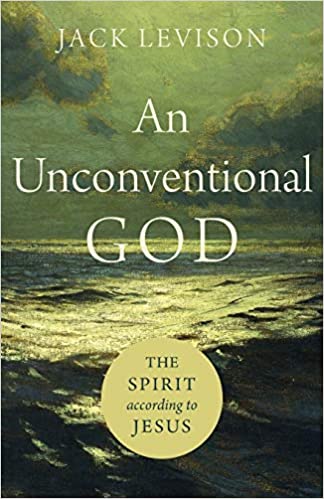BEN: In some ways it does not matter whether we call the dramatic work of God in the OT the work of the spirit or living presence of Yahweh, or the work of what later believers called the Holy Spirit. Either way, it was God who empowered the miracles, inspired the prophets etc. And I think it is important that we NOT read back into the OT later Christian theology about the Holy Spirit, because that does a disservice to the very nature of the progressive revelation in the Bible, paralleled by the progressive understanding of revelation by God’s people. For the writers of the NT, it was necessary to rethink the OT after the Christ event and the pouring out of the Holy Spirit at Pentecost. What they do not say is that the OT writers really understood things in the same light the NT writers do. They say instead that they longed to look into the future and see where all this was going, being unaware the spirit of Jesus was at work in them. And so the writers of the NT use the OT to talk about fulfillment, type and antetype, and basically they use the OT homiletically, rarely doing straight exegesis in a this is that kind of way. Instead they use the phrases, language, ideas of the OT to speak into a new situation, a new work of God. The trick is to see the continuity between the testaments without denying the obvious differences, including the differences in the way God is described. The OT knows basically nothing of a 3 personed singular God. In the NT we definitely have the raw material of such an idea, beginning with that some 7 times Jesus himself is called God in the NT in one way or another, and then Paul is prepared to say the very same things about the Spirit as he says about Jesus and God. Even the phrase blasphemy against the Spirit indicates the Spirit is a person. Powers, forces, presences can’t be blasphemed, only a person, in particular only God can be. As we conclude our dialogue could you lay out how your view of the talk about the Spirit differs from what I have delineated here and earlier in this discussion?
And a little P.S. Hawthorne’s discussion of a pre-incarnate decision by God’s Son to put the omnis on hold is based on Phil. 2— Hawthorne’s favorite text. Unless one is prepared to say Paul is wrong about that, then one shouldn’t say Hawthorne imposed this notion on the Gospel writers. No, the earliest writer in the NT canon, Paul, tells us this is how it actually was, and it makes good sense of so much of the Gospel stories themselves such as when Jesus is said to grow in wisdom, or Jesus says he doesn’t know something and so on. Especially in the case of Matthew and John which depict Jesus as God’s Wisdom come in the flesh, there doesn’t seem to be a lower Christology there than in Paul. Yes, the Gospel writers give us the interpreted Jesus. The question is— were their interpretations right? Jesus was such a complex historical figure one interpretation could hardly do the job.
JACK: Goodness, Ben, I answered all those questions … and then this magnificently significant one! Let me clarify:
· I do not think it is right to read the Trinity in or into the Old Testament.
· I do think the Spirit is understood as a person—I prefer the term, agent—in the Old Testament. This is the point of the book I published last year with Baylor University Press, titled The Holy Spirit before Christianity. While I do not see this person or agent as a person of the Trinity in the Old Testament, I do see the Spirit as a person in Isaiah 63 and Haggai 2. Something stunning took place in those texts, as their authors reimagined the exodus traditions and replaced the pillars and presence of God with the Spirit understood as an agent.
· I agree that early believers had strategies for incorporating the Old Testament which entailed both continuity and discontinuity. I think the Holy Spirit lies at the nexus of this development—a person in the Old Testament but not a person of the Trinity in the Old Testament. In some ways, Ben, the Holy Spirit is the perfect example of this tension.
Let me conclude with a reminiscence about Jerry Hawthorne. I love Jerry dearly, still do, but I don’t think he should have read Jesus’ experience of the Holy Spirit in light of kenosis. I see why he did it. But I think we need to connect at least one Spirit saying or experience in the gospels more directly with kenosis if we are going to develop a pneumatology of Jesus in light of Philippians 2. Perhaps I am being too cautious here. If Philippians 2 mentioned the Holy Spirit, or references to the Spirit in the gospels could be connected to kenosis, I would feel better about his doing this. But that doesn’t happen.
By the way, for two successive summers, I taught Jerry’s Greek class and lived in his and Jane’s home. Every day, I would come to the small carrel in the library where he worked, and we would have some of the liveliest, most memorable conversations of my now-long life. They were magical. Absolutely magical. And what was he writing? His Word commentary on Philippians, which I treasure to this day, as I do the memories of Jerry.













